In today’s fast-paced and ever-changing job market, appreciation for unconventional talent is rapidly growing among forward-thinking companies aiming to cultivate diverse and groundbreaking teams. Non-traditional talent encompasses individuals who possess exceptional qualities and backgrounds that deviate from conventional hiring criteria. They may originate from diverse educational backgrounds, harbor adjacent skill sets, fall beyond the boundaries of the typical age range, or represent a multitude of sociocultural groups. Regrettably, many HR professionals and recruiters tend to disregard these candidates, fixating primarily on academic qualifications and skills, thus undervaluing the intrinsic significance of experience, personality, and cultural compatibility.However, some leaders have already recognized the potential of this strategy. The latest 2024 Talent Trends research by SHRM confirms that 23% of companies seek talent from non-traditional sources
Non-traditional talent not only helps companies cultivate an environment of diversity and inclusivity but also nurtures a culture of innovation and adaptability.To truly unleash the boundless potential of non-traditional talent, organizations must wholeheartedly embrace a more expansive perspective. While it is undeniable that academic qualifications and skills hold weight, they should not reign as the sole arbiters in the hiring process. Experience plays a crucial and vital role, especially in areas that prioritize practical knowledge and real-world expertise. Non-traditional talent not only helps companies cultivate an environment of diversity and inclusivity but also nurtures a culture of innovation and adaptability.
When organizations break free from conventional thinking and recognize the unique perspectives of non-traditional individuals, they open doors to new opportunities and unlock unexplored worlds of creativity and productivity. By recognizing the unique talents of individuals from diverse backgrounds, companies exhibit their dedication to building a workforce that accepts everyone and gives each person an equal chance to bring their best to the table.

Why Hire Non-Traditional Talent?
Let us consider two candidates. Candidate A is a freshly graduated MBA candidate, and Candidate B, is an individual with an undergraduate degree in a different field but boasting an impressive 5+ years of professional experience. Through a comprehensive evaluation, it becomes apparent that Candidate B is the superior choice. But how did we reach this conclusion?
Foremost, Candidate B’s extensive tenure of 5+ years in a professional setting serves as a testament to their ability to navigate and conquer real-world challenges, thus effectively applying their acquired skills. Moreover, the candidate’s undergraduate degree in a different field grants them the advantage of possessing diverse perspectives and a fresh approach to problem-solving.
In terms of cost-effectiveness, hiring Candidate B can potentially be a prudent choice for the organization. Unlike Candidate A, whose recent MBA graduation might command a higher salary, Candidate B’s qualifications and substantial experience can deliver similar, if not superior, value at a potentially lower cost. This fiscal prudence contributes to the overall appeal of selecting Candidate B for the position.
By embracing and leveraging the unique strengths harbored by individuals like Candidate B, organizations can unlock the gates to innovation, propel growth, and secure a competitive edge in today’s dynamic business landscape.
Also read: Candidate Journey Map: Here’s how you can do it.
Benefits of hiring non-traditional talent
Actively pursuing and recruiting non-traditional talent can yield numerous advantages for organizations, including the development of an inclusive workforce, enhanced profitability, and an expanded talent pool.
Let’s dive deeper into the specific benefits associated with hiring non-traditional talent:
#1 Enhanced Creativity and Innovation
Embracing non-traditional talent offers a key advantage in creating an inclusive workforce. By doing so, companies can foster a dynamic environment that nurtures creativity and innovation by embracing diverse perspectives. This involves broadening horizons and actively welcoming new viewpoints. Non-traditional talent helps companies tap into a wealth of unique ideas and insights. This diversity of thought can lead to more comprehensive problem-solving, enhanced decision-making, and increased adaptability in an ever-changing market.
#2 Creating a Fair and Inclusive Work Culture
Embracing non-traditional talent allows companies to break down barriers that have historically excluded individuals from marginalized groups. By intentionally hiring from historically discriminated sections based on gender, class, social background, or unfortunate life experiences, organizations can provide second chances and empower individuals who have faced systemic obstacles. This not only contributes to social progress but also positions companies as agents of positive change, fostering goodwill within communities and society at large.
#3 Increasing Profits
Numerous studies have shown that diversity positively impacts business outcomes. By integrating non-traditional talent into their workforce, companies can harness the power of diverse perspectives, resulting in heightened creativity, innovation, and problem-solving capabilities. A study conducted by McKinsey & Company revealed that organizations with diverse teams surpassed their counterparts by 35% in terms of financial returns, highlighting the tangible benefits of embracing diversity. Embracing non-traditional talent can also bolster employer branding, making the company more attractive to potential customers and clients who value diversity and inclusion.
#4 Attracting More Diverse Customers
A diverse workforce can resonate with a broader range of customers. Hiring non-traditional talent enables companies to connect with different demographics and cultures, allowing for a better understanding and anticipation of customer needs. This holds particular significance in customer-facing roles and service-oriented industries, where a diverse workforce can establish an environment that is both inviting and relatable. By catering to clients who prioritize diversity and inclusion, organizations can broaden their customer base, enhance customer loyalty, and gain a competitive advantage in the market.
#5 Improved Hiring Outcomes
Hiring non-traditional talent offers a solution to the perennial challenge of talent scarcity.. By looking beyond traditional sources such as specific universities or degrees, companies can tap into a broader talent pool. This approach creates pathways for individuals who are self-taught or have acquired skills through non-traditional means, offering them opportunities to showcase their abilities. It fosters a more inclusive and merit-based recruitment process, where diverse talents and skills are acknowledged and appreciated. Additionally, by considering non-traditional candidates, companies can fill long-standing vacant positions and address skills gaps more effectively.
How to Hire Non-Traditional Talent?

In the fast-paced landscape of today’s business world, organizations are increasingly recognizing the significance of embracing non-traditional talent. While traditional hiring methods have their merits, they inadvertently impose limitations on diversity and impede innovation.
To create a truly inclusive workforce and tap into a broader talent pool, companies must adopt a fresh approach to their recruitment strategies. Let us look into five effective ways to hire non-traditional talent while promoting inclusivity and embracing diversity:
#1 Crafting More Inclusive Job Descriptions and Advertisements
The initial step in attracting non-traditional talent involves crafting job descriptions and advertisements that are inclusive and appealing to a diverse range of candidates. Instead of solely prioritizing qualifications and experience, it is crucial to highlight the core competencies and skills necessary for the role. This approach entails using gender-neutral language and avoiding jargon that may exclude potential applicants, establishing a welcoming and inclusive tone that encourages a broader range of candidates to apply.According to LinkedIn, the fresh ideas and approaches contributed by non-traditional talent help organizations think outside the box and stay ahead of the curve.
Also read: A Guide to Be an Effective Recruiter
#2 Fostering Open-Mindedness among Recruiters and HR
Recruiters and HR professionals hold a pivotal role in the hiring process. To ensure fair and unbiased evaluations of candidates, it is essential to maintain an open-minded approach among all stakeholders involved. Providing diversity and inclusion training that emphasizes the importance of conducting assessments based on skills, potential, and cultural fit rather than predetermined expectations can help establish a culture of inclusivity. This, in turn, enables recruiters and HR professionals to identify and attract non-traditional talent.
Also read: AI Bias in Recruitment
#3 Diversifying Recruitment Sources
Companies seeking non-traditional talent must expand their recruitment sources beyond conventional avenues. Consider partnering with non-traditional organizations, diversity-focused job boards, and online platforms that cater to underrepresented groups. Additionally, broaden the scope of campus recruitment initiatives to encompass universities and colleges with diverse student populations. Leveraging the power of social media platforms can also prove highly effective in connecting with non-traditional talent. Actively engaging with relevant communities and sharing job opportunities helps broaden the reach and attract a more diverse talent pool.
Also read: Social Media Hiring: Best Strategies
#4 Engaging with Online and Offline Job Forums
Participating in both online and offline job forums offers a wonderful chance to connect with non-traditional talent. These forums provide platforms like professional networking sites, industry conferences, and meetups where you can connect with a diverse group of professionals who may not be actively seeking employment but are open to exploring new opportunities. By actively participating in conversations and showcasing your company’s commitment to diversity and inclusion, you can attract talented individuals with varied backgrounds and experiences.
Also read: Simple Steps to post a job on LinkedIn
#5 Promoting Training Programs
Another effective strategy for tapping into non-traditional talent involves advertising training programs within your organization. Promote these programs as pathways to employment, targeting individuals who possess the core aptitude and potential but may lack traditional qualifications or experience. By investing in the development of non-traditional talent, you not only bridge skill gaps but also cultivate loyalty and engagement. These programs can be crafted to offer practical experience and mentorship, empowering candidates to acquire the essential skills required before transitioning into full-time roles. By providing hands-on opportunities and guidance from experienced professionals, these programs facilitate the development of necessary competencies and ensure a smoother transition into permanent positions.
Also read: Importance and benefits of recruiting training
Best practices for hiring non-traditional talent
There are a number of best practices you can adhere to when employing non-traditional talent to guarantee a successful and inclusive hiring process. Here are some important suggestions:
#1 Reevaluate the job requirements
Non-traditional candidates may be unintentionally left out of typical job descriptions. Instead of concentrating simply on formal qualifications, take into account the abilities, viewpoints, and experiences that might help someone succeed in the position. Be receptive to new job choices and transferable skills.
#2 Expand recruitment channels
Companies should start looking outside their typical sources for non-traditional talent. Participate in industry events, professional networks, community organizations, and specialized job sites that serve underrepresented populations. Join forces with organizations that promote diversity and inclusion to utilize their networks.
#3 Be more inclusive
Encourage the use of inclusive language in job descriptions and advertisements by emphasizing the company’s commitment to diversity and equal opportunity. While avoiding pointless details, be sure to express the abilities and background that are actually important for the position.
#4 Blind resume screening
Use these techniques to lessen unconscious biases during the initial evaluation of resumes. Remove identifying information from resumes like names, genders, and ages and concentrate instead on skills and experience.
#5 Adopt competency-based interviewing
Instead of depending exclusively on conventional questions, interview questions should be based on the essential competencies needed for the position. Create standardized interview guides that evaluate candidates’ competencies, capacity for problem-solving, and potential, enabling fair comparisons.
Conclusion
In a nutshell, seeking out non-traditional talent is crucial for building diverse, dynamic teams infused with innovation. It’s about time companies broke free from the limitations of conventional hiring practices and wholeheartedly adopted a fresh and forward-thinking approach. But how can you attract and engage these exceptional candidates?
To attract and engage these candidates, companies should focus on crafting inclusive job descriptions, encouraging open-mindedness among recruiters, expanding recruitment sources, engaging with job forums, and promoting training programs. But how can you bring all these strategies together seamlessly?
This is where Hyreo comes in. It is the ultimate recruitment platform that’s here to revolutionize your hiring game. With Hyreo, you can infuse diversity, equity, and inclusion (DEI) into every step of your recruitment process. Craft inclusive job descriptions, engage candidates with personalized communication, tap into a plethora of talent sources, and enjoy streamlined and efficient communication between your team and potential hires.
FAQs on Hiring strategies for non-traditional talent
What is nontraditional talent, exactly?
People with remarkable characteristics and backgrounds that differ from typical hiring criteria are referred to as non-traditional talent. They may belong to various sociocultural groups and represent a variety of educational backgrounds, skill sets, and age ranges.
Why should businesses employ unconventional talent?
Employing non-traditional talent has a number of advantages, such as building an inclusive workforce, increasing profitability, having access to a larger talent pool, and fostering relationships with a variety of clients. Organizations benefit from the new perspectives, creativity, and problem-solving skills that nontraditional talent offers.
How might hiring talent outside of the norm increase profitability?
According to studies, businesses with diverse teams outperform their rivals in terms of financial gains. Employing non-traditional talent enables businesses to tap into a range of viewpoints, fostering greater innovation, creativity, and better decision-making, all of which eventually boost profitability.




